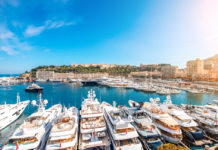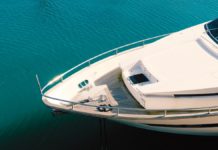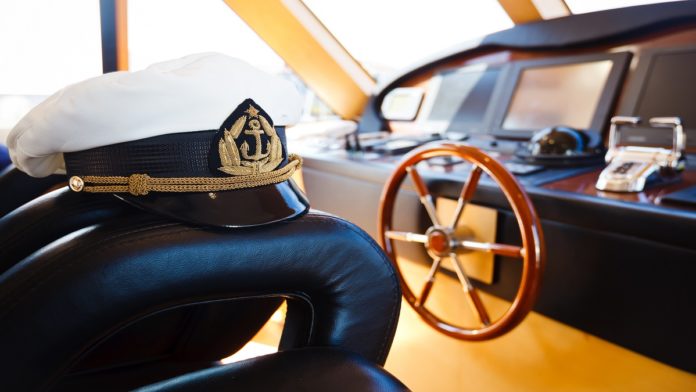
What exactly does the Skipper’s job entail? And what are their specific responsibilities? In this blog post, we’ll delve deeper into the world of sailing and explore the various duties and obligations.
What is a skipper?
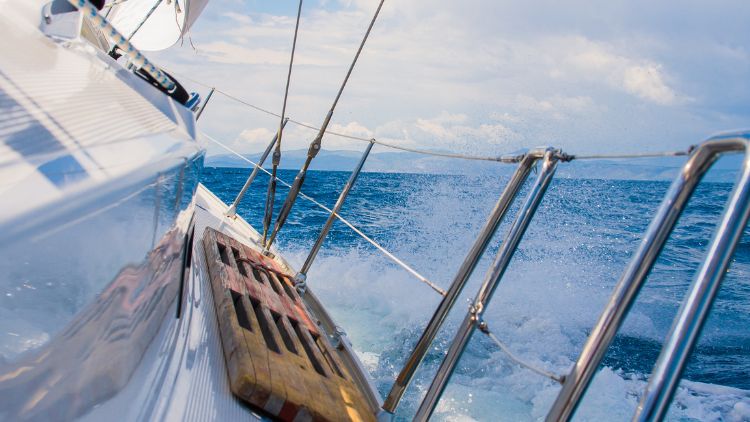
A skipper is someone who is in charge of a boat, responsible for its navigation, safety and overall operation. They possess a high level of seamanship and nautical knowledge, gained through years of training, experience and certification.
A skipper’s duties vary on the type and size of the vessel, but generally involve planning and executing the route of the boat, managing the crew (if any), ensuring compliance with maritime regulations, monitoring weather and sea conditions, and responding to emergencies if they arise. They must have excellent communication skills to effectively communicate with crew members, port authorities and other vessels, as well as possessing leadership qualities to maintain morale and ensure smooth operations. Being a skipper requires a lot of dedication, hard work and a passion for the sea. It can be a highly rewarding career choice for those who love adventure and enjoy working in a challenging and dynamic environment.
When do people usually need to hire a skipper?
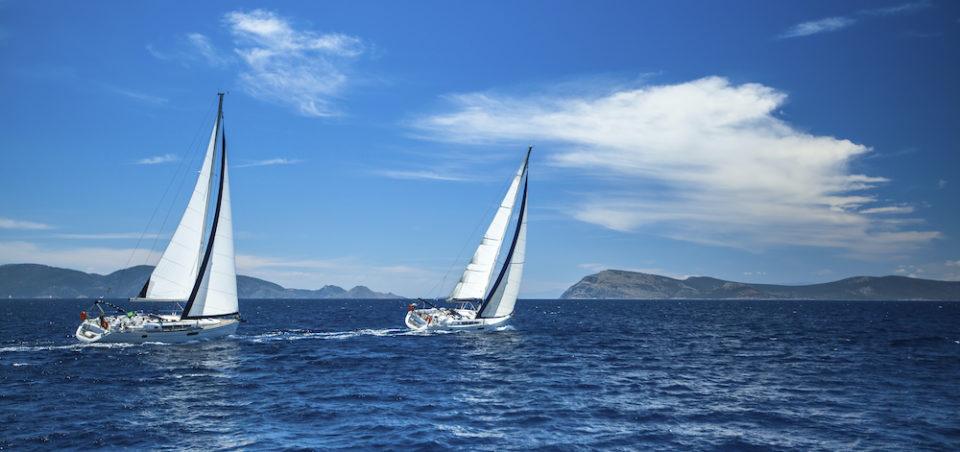

A skipper is great when you want to rent a bareboat but you do not have a licence
When it comes to renting a bareboat without a license, hiring a skipper is always a wise choice. This is especially true for people who lack the knowledge and experience to sail on their own, or for those who want to enjoy a stress-free and relaxing vacation on the water. But even experienced sailors may need to hire a skipper in certain situations, such as when they want to explore new waters or unfamiliar destinations, or when they simply want to sit back and enjoy the scenery without having to worry about navigation and other technicalities.
Hiring a skipper is a great idea to learn how to operate a boat safely
When embarking on a bareboat charter, it is essential to ensure that safety is the top priority. One great way to learn how to operate a boat safely is by hiring a skipper. Not only do skippers have years of experience operating boats in various conditions and environments, but they also have extensive knowledge of safety guidelines and protocols. By having a skipper on board, you can learn firsthand the best practices for navigating through unfamiliar waters, avoiding potential hazards, and handling emergency situations.
You could get a skipper if you don’t want the hassle and stress of handling the boat you are renting
If you are embarking on a bareboat charter but don’t have experience sailing a yacht or simply want to avoid the stress and hassle of doing it yourself, there’s no need to worry. Many charter companies offer the option of hiring a skipper to take care of the sailing for you. A skipper is a professional sailor who has the necessary expertise and qualifications to navigate the waters safely and efficiently. They are also knowledgeable about the area and can offer valuable insights on great destinations, local attractions, and hidden gems. Hiring a skipper can be an excellent choice if you want to sit back, relax, and enjoy the stunning views and warm breeze of the open sea without any worries.
Read also: Yacht Rental With Skipper And Hostess Vs Fully Crewed Charters
What is the difference between a skipper and a captain?
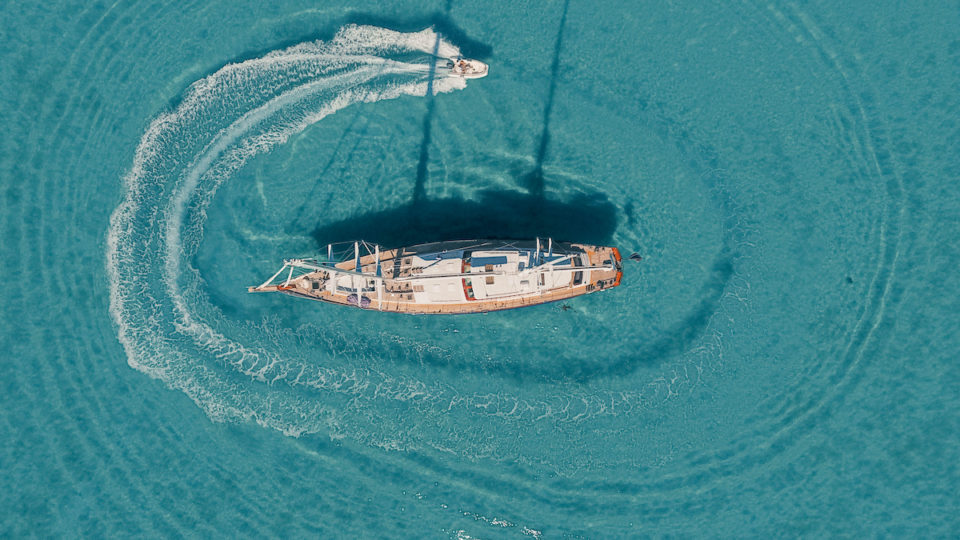
Captain is more honorific and implies bigger ships and / or bigger crew
In the maritime industry, the terms “skipper” and “captain” are often used interchangeably, but they are not exactly the same. While both roles involve being in charge of a yacht and making decisions about its operation, the main difference between a skipper and a captain is in the size and complexity of the yacht they are responsible for.
Another important difference between a skipper and a captain is in the level of training and certification required. While a skipper may only need a basic boating license, a captain requires more extensive training, experience, and certification. In addition, a captain is often required to have a deeper knowledge of navigation, meteorology and communication procedures, as well as leadership and management skills to oversee a crew.
Skipper is more used for smaller yachts without additional crew
A skipper is typically in charge of smaller boats, such as pleasure crafts, or small commercial boats, that may not require numerous crew. They are often responsible for their own safety and that of their passengers, as well as sailing.
The responsibilities of a skipper
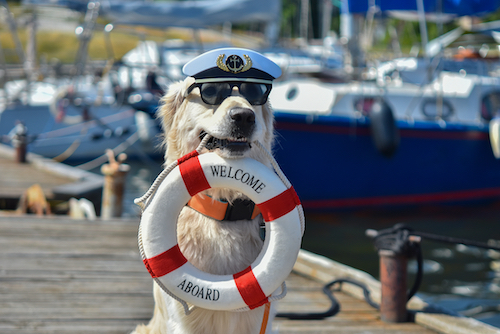
Ensure everybody is safe on board
As the leader of the yacht, the skipper takes on the critical role of ensuring the safety of everyone on board. This includes implementing and enforcing safety procedures and regulations, as well as monitoring the behavior of passengers to prevent any risky activities. The skipper should maintain a thorough knowledge of the boat’s capabilities, weather conditions, water depth, and any other pertinent factors that could affect safety.
Help the client set the itinerary
When it comes to bareboat chartering, having a knowledgeable skipper on board can make all the difference in creating a customized itinerary. A skilled skipper can assess the client’s preferences, skill level, and the local sailing conditions to craft a tailored route that balances excitement with safety. This may involve planning stops at hidden coves and beaches that offer privacy and tranquility, or visiting bustling port cities with plenty of entertainment and dining options.
Respecting the maritime laws and best practices
As the person in charge of a vessel, the skipper has a great deal of responsibility when it comes to ensuring the safety of all passengers and crew on board as well as adhering to maritime laws and best practices. This includes conducting regular safety checks, keeping up-to-date with weather forecasts and navigational charts, and making sure that all safety equipment is in good working order and accessible. The skipper is also responsible for monitoring radio communication channels and maintaining a lookout for any potential hazards. Furthermore, they must ensure that the vessel is properly maintained and that all necessary repairs and maintenance are carried out promptly. The skipper must possess superior leadership skills to manage the crew and be able to make tough decisions in the event of an emergency or an unexpected situation.
Making sure the boat is running smoothly
As the captain of the vessel, the skipper holds a critical role in ensuring the smooth operation of a boat. The skipper is responsible for the safety of all passengers and crew members, which requires them to have extensive knowledge of navigation, weather patterns, tides, and other crucial elements of boating. They are also charged with maintaining the boat’s mechanics and ensuring it is seaworthy at all times. Furthermore, a skipper must remain vigilant, keeping a watchful eye on the boat’s equipment and the surrounding area, ensuring that any potential hazards are quickly identified and addressed.
When hiring a bareboat plus skipper the charterer is responsible for any damages incurred to the boat
Although the skipper holds ultimate responsibility for the safety and operational aspects of the boat, it is important to note that it is the charterer that is responsible of the boat rented bareboat. This is especially true when it comes to a bareboat charter plus skipper. In such instances, any damage that may occur will likely be covered by the boat’s insurance policy, making the responsibility for repairs or compensation fall to the owner or the charterer.
It is therefore important to thoroughly review any rental or charter agreements to understand the specific terms and conditions of the arrangement, including insurance coverage, to ensure that both parties are protected in the event of any unforeseen incidents. We recommend you take a deposit insurance to cover yourself from any damages, and to check any details with your broker.
Read also: Comprehensive Guide To Frequently Asked Questions On Buying A Yacht
How do you choose a skipper?
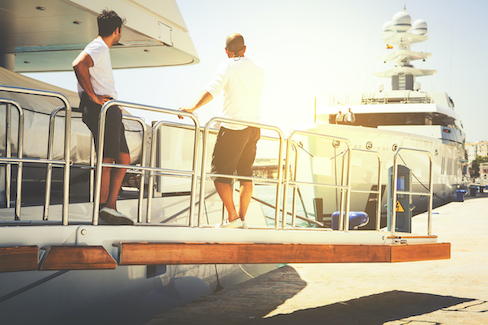
You can pick a skipper based on his location and spoken language
When it comes to selecting a skipper, there are several factors that can be taken into consideration.
Choose a skipper who is located in close proximity to the place of departure can be highly advantageous as it often translates to a more affordable price.
Choose a skipper who speaks a language that is understood by all passengers is essential.
Choose a skipper that hold the right diploma and has a wealth of experience in handling the specific type of boat being used is crucial.
You can ask your charter company for some references
If you do not already have contact with a skipper for your charter you can ask your charter company for some references. They will put you in contact with local skipper they are used to work with and you will be able to draw a contract with him/her.
What are the licenses needed to become a skipper?


Like car licenses, there are different categories. But here’s the catch: it’s not just about the category, it’s about your practical experience and the miles in your logbook that really matter.
Believe it or not, you can charter a yacht in Europe with a Bareboat Skipper (IYT) / Inshore Skipper (ISSA) / Day Skipper (RYA) license. This beginner category allows you to sail 20 miles offshore during daylight hours in good weather. However, if you go beyond the 20-mile limit and encounter any issues with your yacht, your insurance might not cover it. Recently, some countries, like Greece, have started to impose restrictions on chartering yachts for skippers with “day licenses.”
The next category is the Coastal Skipper / Offshore Skipper. With this license, you can sail up to 60 miles offshore at night, still in good weather.
And finally, we have the highest category: Yachtmaster / Master of Yacht. With this prestigious license, you can embark on challenging sailing expeditions, including crossing the Atlantic. This license is truly a badge of honor among yacht owners.
What is the cost of a skipper?
The cost of hiring a skipper for a week can range from €250 to €350 per day. For a longer duration, the cost may decrease slightly. However, during peak season, the cost may be higher due to high demand. It is also important to note that in some countries, it is mandatory to hire a skipper if you do not have the necessary qualifications to sail.
Conclusion
Skipper’s job involves a lot of responsibilities that should not be taken lightly. Not only is he in charge of ensuring the safety of his passengers and crew, but he also plays a crucial role in protecting the marine environment and preserving its natural beauty.
Furthermore, Skipper must have extensive knowledge and experience to navigate the waters confidently and smoothly, as well as to handle any unexpected situations that may arise. He must also be an excellent communicator, able to easily convey important information to his passengers and crew, and be approachable and attentive to their needs.
Overall, being a Skipper is a challenging but rewarding career that demands a range of skills and capabilities. If you are planning a boat trip or thinking of pursuing a career as a boat captain yourself, it’s crucial to understand Skipper’s job and responsibilities fully. Only then can you appreciate just how much he does and how much he can contribute to making your boating experience safe, enjoyable, and memorable.
Read also: Mediterranean Yacht Charters: The Full Price List



